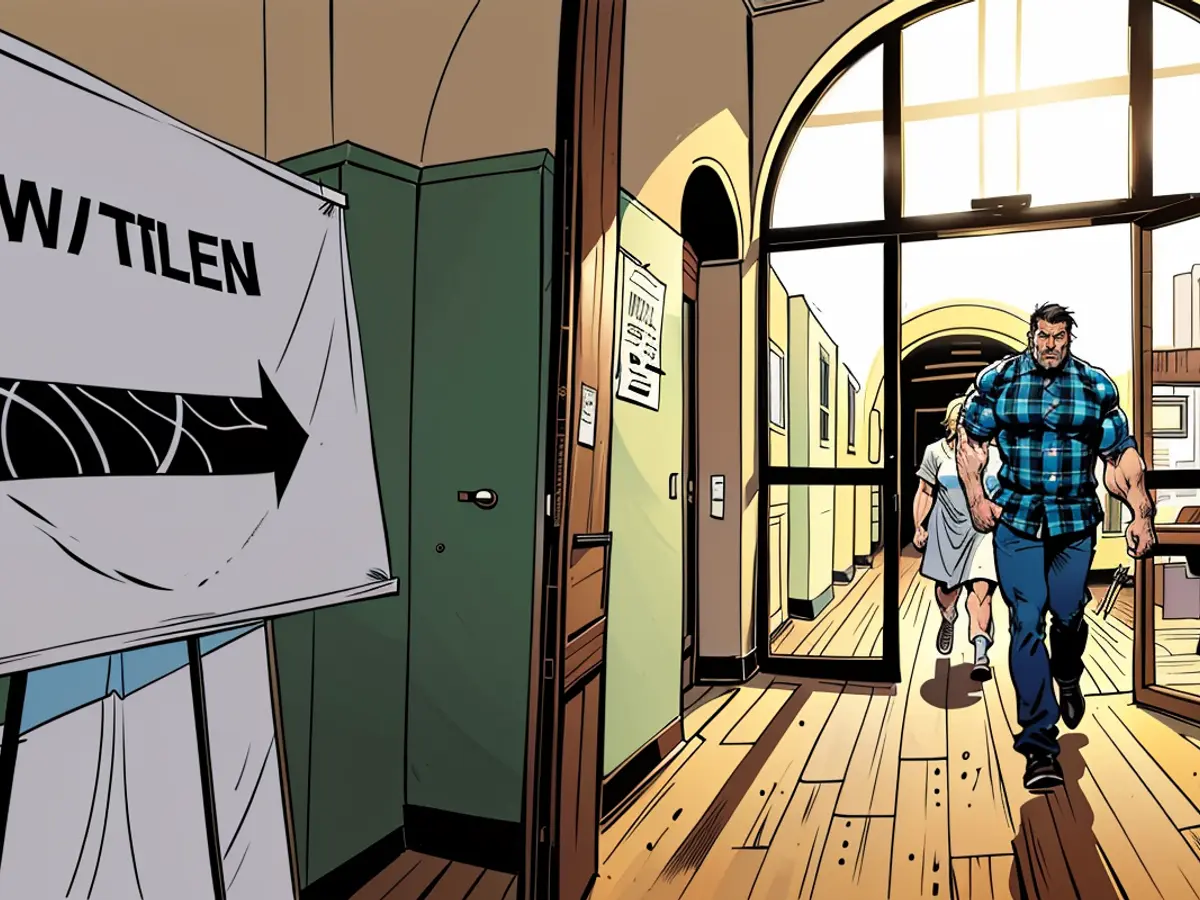Voting cycles. - Reactions to European elections range from sadness to satisfaction.
In the recent elections, the CDU emerged victorious with 30.7% of the votes, but a 0.6% drop from their previous performance. They were the strongest party in all twelve free cities and all 24 districts. Two years ago, the Greens had the highest number of votes in the university cities of Mainz, Landau, and Trier. CDU Secretary-General and Chairperson of the CDU Faction in the Landtag, Gordon Schnieder, expressed his satisfaction with the outcome but acknowledged there was still potential for improvement.
The other major player was the AfD, which gained 14.7% of the votes, a 4.9% increase from the last election. They even topped the charts in the Germersheim district with 27.2%. AfD State Leader Jan Bollinger described the results as a "significant milestone" on their way to becoming a people's party in Rhineland-Palatinate.
The Free Voters, represented in the Rhineland-Palatinate state parliament, achieved 5.2%, a 2.3% increase from the previous time. This was a remarkable outcome for the Deputy State Chairperson, Christian Zoefchen. Their candidate for the European Parliament, Joachim Streit, was also successful. Consequently, the position of the Free Voters' parliamentary group leader in Mainz must be reallocated.
Among most of the red-green parties that make up the state government in Rhineland-Palatinate, however, the mood was not so cheerful. The SPD saw a 3.8% decrease and gained 17.5%, the Greens had a 7.4% dip and got 9.3%, and the FDP witnessed a 0.1% growth and reached 5.9%. SPD Parliamentary Group Leader Sabine Baetzing-Lichtenthaler described her party's performance as "disappointing" and "depressing," considering the values of the AfD.
Baetzing-Lichtenthaler believed people were searching for an alternative to express their displeasure with the traffic light coalition in the federal government. She expressed the hope that the parties would avoid open conflict and instead focus on debating for the best solutions. Although she didn't dismiss the possibility of personnel changes, she emphasized the need to avoid arguing in public.
The Green Parliamentary Group Leader Pia Schellhammer described the outcome as a "harsh setback." The Greens especially lost significant ground among young voters, which was cause for concern. She emphasized the urgency of finding ways to engage with young people and highlighted the importance of changing the direction of the federal traffic light government. Schellhammer was quick to point out that the party had done remarkably well in the European election of 2019, when the climate protests were at their peak.
FDP Leader Philipp Fernis expressed satisfaction with the FDP's result, albeit a mixed bag. His party had done well in addressing the needs of citizens regarding relief. However, he conceded that the SPD now faced more pressing questions. The topic of the welfare state, Fernis opined, held little significance for working individuals compared to organized social democracy.
Fernis expressed optimism that AfD supporters could be drawn back with efforts aimed at winning over young people, as he believed the chances of success among them were substantial. A key factor in their strategy is understanding and adapting to the changing media landscape, specifically, the rising influence of platforms like TikTok where the AfD has a substantial following.
Schnieder, the CDU Faction Leader, agreed that a thorough analysis was required, but stated that the influence of TikTok, where simple and short answers are popular, should be addressed. Both he and Fernis underlined the importance of establishing more trust in politics.
CDU faction leader Schnieder considered the new party BSW from Sahra Wagenknecht, which garnered 4.7% in Rhineland-Palatinate in the European elections, as a "clear red card" for the Berlin traffic light government.
The results of the local elections in Rhineland-Palatinate are still pending as the election system allows multiple votes to be distributed among different candidates or awarded to one candidate. Consequently, the final tally is not expected until the middle of the week. However, it's known that the CDU faction needs a new parliamentary group leader as the current one, Martin Brandl, was elected as the new District Administrator of the Palatinate district of Germersheim. Brandl remarked that this new position was a "dream job" and his main motivation for moving from Mainz to Germersheim.
Read also:
- In Rhineland-Palatinate, the FDP also performed well in the local elections, with gains in several areas such as Germersheim and Mainz.
- European Parliament elections in Trier saw a strong showing from the FDP, mirroring their performance in the regional elections.
- The FDP's success in the European elections could be a sign of a broader trend, potentially impacting future local elections in Rhineland-Palatinate towns like Landau and Mainz.
- Despite the SPD's disappointing performance in the European elections, they remain the largest party in the Rhineland-Palatinate state parliament, with seats in cities like Trier and Mainz.
- The AfD's strong showing in the European elections in Landau and Trier has raised concerns among the other parties, prompting calls for more dialogue and cooperation to counter their influence.
- In Gemersheim, the CDU and the AfD are expected to face off again in the upcoming local elections, as both parties aim to strengthen their positions in the Rhineland-Palatinate region.
- TikTok has become a significant platform for political discourse in Rhineland-Palatinate, with the AfD and the FDP actively using it to reach out to young voters in cities like Mainz and Landau.
- The FDP's strategy for the local elections includes engaging with young voters on platforms like TikTok, a move that could potentially impact the party's performance in cities like Trier and Landau.
- In the 2019 European elections, the FDP gained significant support in university cities like Mainz and Trier, demonstrating their potential to attract young voters in local elections as well.
- The green party in Rhineland-Palatinate is looking to regain its footing in the local elections, especially among young voters in cities like Trier and Landau, where the party saw a decrease in support in the European elections.








